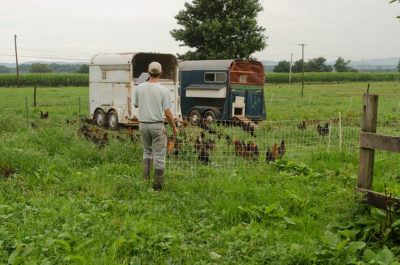
Image source: democratandchronicle.com
Despite the biotech industry’s apparent dominance on the food market, the organic food and farm industry grew at a record place in 2013 – and the pace shows no signs of slowing.
According to new data, the industry encompassed a record-breaking 18,513 certified organic farms and businesses in the United States in 2013 — a 245 percent increase since 2002 and a 4.2 percent increase from 2012. Retail sales were valued at $35 billion.
Additionally, there were more than 25,000 certified organic growing operations in 120 countries which are registered with the USDA, according to the new government data. A deal inked just a few weeks ago initiated new trade agreements between American organic farmers and vendors in Canada, Japan and Europe.
Meanwhile, the highly controversial farm bill signed by President Obama in February is now being heralded by some organic growers, who have struggled to keep a hold of their share of the food supply marketplace.
The organic farming industry no longer feels it is being thrown under the bus and actually saw funding in the farm bill for many popular programs reestablished – increased in some case, according to Food Safety News. The previous bill had gutted some of the funding.
“Consumer demand for organic products has grown exponentially over the past decade,” USDA Secretary Tom Vilsack said. Organic Trade Association editor Barbara Haumann had this to say about the new legislation, “[It is] a refreshing twist to a tortuous journey that has resulted in historic wins and promise for organic.”
New Natural Fertilizer Doubles Garden Production!
The significant growth has become a double-edged sword for the industry. On one hand, both consumers and farmers who only want to consume organic and GMO-free products rejoice that Americans are eating more healthy. But on the other hand, fiscal conservatives, even the ones who go out of their way to buy organic, note that if the industry has grown without the taxpayer-funded programs, there really is no need to reestablish them.
 Among the farm bill’s financial boosts for the organic industry:
Among the farm bill’s financial boosts for the organic industry:
- A $5 million data collection program which will share organic agriculture details with government officials, other growers, and the organic marketplace.
- A $20 million organic research, education and agricultural extension program.
- An increase in organic crop insurance protection for farmers. The growers will be able to seek compensation based upon the price of organic crops and not conventionally grown or GMO crops.
- An expansion of exemptions for organic farmers who pay into the government commodity “check-off” programs. Previously the farmers were required to pay “commodity assessment fees” for the programs which are designed to help promote specific crops.
- A $5 million upgrade to the National Organic Program technology system.
- An $11.5 million certification cost-share assistance, which reimburses up to 75 percent of the annual certification fees paid by organic ranchers and farmers. Opponents to the program have argued that simply reducing certification fees to a more affordable level is a far more logical response to the expensive process.
- An $11.5 million program for organic farmers for various cost-sharing initiatives.
Diane Dempster of Charlie’s Produce told Food Safety News:
Before, only natural food co-ops carried organic food. But now all of the grocery stores – even the little mom and pop stores do. They’re all featuring it. It used to be a fad but now it’s mainstream. And it just keeps growing. I don’t see that changing.
Contented Acres Produce owner Bill Nunes said, “It’s good, no doubt, that there’s more money for organics. But we’re still the stepchild of US agriculture.” The Georgia farmer went on to say that while the funding will allow universities to do more organic agriculture research, the work being funded and undertaken is still largely “lopsided” when compared to the ongoing GMO farming studies.
Sign up for Off The Grid News’ weekly email and stay informed about the issues important to you
 Off The Grid News Better Ideas For Off The Grid Living
Off The Grid News Better Ideas For Off The Grid Living




